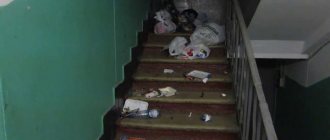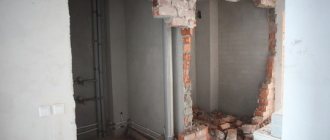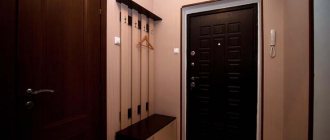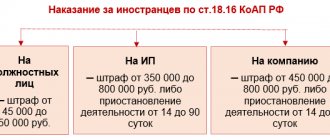Smoking negatively affects the body of the smoker himself and those who inhale nicotine vapor. The Ministry of Health has long warned about this, but the state regulated the issue of protecting the health of citizens from the effects of tobacco smoke with the entry into force of Federal Law No. 15-FZ dated February 23, 2013 . It restricted smokers from spreading tobacco smoke in public places.
Amendments are regularly made to the Law, which lead to more and more citizens choosing to give up their addiction. We will tell you what measures will be applied to violators who smoke in the entrance or on the balcony in 2021.
Smoking ban: list of places
To put it briefly and clearly, in any premises where people can live, engage in activities or relax (playgrounds, beaches, passenger platforms, gas stations).
In addition, this list includes trains and ships, the stay on which involves a long period of time, or they are intended for the transport of passengers. Airplanes are also places where smoking is prohibited, as it not only harms passengers, but can also start a fire.
How to prove the fact of an offense?
Neighbors smoke in the entrance - what to do? To bring the offender to justice, it is necessary to collect evidence of illegal behavior.
They can be:
- Testimony of witnesses - most often these are other neighbors, but there may also be strangers (at least 2 people);
- Photos;
- Video recordings.
Only high-quality video and photographic materials that clearly depict both the event itself and the face of the offender are accepted for consideration. If you do not have photo and video facts, you can get by with a written complaint. It is better if it is collective.
Is smoking allowed in hallways?
Definitely not. The entrance is not a place where smoking is permitted. It is not equipped with a ventilation system for this purpose. In addition, the doors of residential apartments open onto the entrance. Thus, the residents of the house will inevitably find themselves in the entrance, forced to breathe the substances that evaporate when smoking.
At the same time, do not forget that the smell may not disappear for a very long time, since there is only “natural” ventilation - doors and windows. That is, a person who is unlucky enough to find himself in a room after a smoker is there is faced with two problems at once: harm to health (passive smoking has not been canceled), an unpleasant smell (it is one thing to smoke when you are addicted to this activity, quite another thing to inhale the smell burnt cigarette and the air exhaled by the smoker).
Also, do not forget that people have bronchial asthma. For such persons, such air becomes completely suffocating.
Definition of a communal apartment
The definition of a communal apartment can be found in the Housing Code of the Russian Federation. This is real estate that is owned by several owners. Moreover, the owners can be both individuals and organizations that, for example, provide employees with office living space. In addition, communal housing may be municipal.
Communal apartment
A communal apartment usually houses several families, each of which has one or more rooms. The kitchen, corridor, bathrooms and utility rooms are considered joint property and are used by all residents on an equal basis. Ownership of an apartment is formalized by a purchase and sale or privatization agreement. If the apartment is municipally owned, living in it is possible under a social tenancy agreement.
Where is smoking allowed?
Designated places in the open air (there must be a sign of a cigarette, but not crossed out) or special isolated rooms (“smoking rooms”).
| No smoking | You can smoke |
| Territories and premises intended for the provision of various types of services | Dedicated outdoor seating |
| Premises of social services, authorities | Specially designated isolated rooms that are equipped with ventilation systems |
| Workplaces and work areas | |
| Elevators and common areas of apartment buildings | |
| Children's playgrounds, beaches |
Smoking electronic cigarettes and hookahs - how does the law look at it?
Hookah and electronic cigarettes are not considered tobacco products, since they are not made from tobacco leaves, they are based on other substances. And accordingly, the smoking process turns into vaping.
Therefore, the ban on them is not so severe. However, electronic cigarettes and hookahs are nicotine-containing products, which means their use in the entrance of a residential building is also prohibited. In addition, you need to take into account that strong smoke comes from electronic cigarettes and hookahs.
Evidence requirements
Residents of the entrance can call the police to influence the smoker. But by the time the law enforcement representative arrives, the smoking neighbor will already be in his apartment.
How to prove that it is he who violates the requirements of the law? To do this, you need to properly collect evidence - take pictures, record videos. The smell in the entrance will also tell you about smoking.
IMPORTANT! In some houses, video cameras are installed that record what is happening in the entrance; such a camera will also record the intruder with a cigarette.
It is advisable to have other witnesses who also saw the negligent neighbor while smoking. The first complaint may not bring results, especially if the police do not catch the smoker red-handed. Don't give up. The police will simply be forced to respond to regular statements and complaints from residents of the entrance.
You saw a man smoking in the entrance - what to do?
The residents of the house are perfectly understandable. No one likes going up in an elevator full of choking cigarette smoke. In addition, there is nothing pleasant about the fact that the doors let air in from the entrance and the apartments are filled with a characteristic “aroma.”
What to do:
- Conversation with a smoker. First, you can conduct an explanatory conversation: explain the situation, ask not to perform such actions in the future (however, this method presupposes the adequacy of both the residents and the person who is addicted to smoking).
- Application addressed to the district police officer. If it comes to contacting the local police department, then it is worth enlisting the support of residents or collecting evidence of the guilt of the accused (photo or video materials). The offender may be fined.
What should I do to organize a special smoking area near a residential building?
The main condition for the existence of a place intended for smoking is the presence of a constantly functioning air ventilation system. The area must meet sanitary and fire safety standards, that is, be safe for both smokers and residents nearby. It should be taken into account that the “smoking rooms” are built at the expense of the owners. Consequently, at least half of the residents of the house must be positively disposed towards the construction of this premises and its subsequent maintenance.
The decision to organize a “smoking room” is made at a general meeting of residents (a notice of its holding, indicating the exact date and time, must be received by each resident at least 10 days before the event). At the same time, minutes of the meeting are kept (the issues and decisions taken on them are indicated; the minutes must contain the signature of the initiator of the meeting and the residents who are ready to take responsibility).
Action plan if a smoker is detected at the entrance:
- Explanatory conversation.
- Application addressed to the district police officer + collection of photo and video materials.
| Smoking in the entrance of a residential building | 500-1000 rubles |
| Smoking on the playground/inviting a minor to smoke | 2000-3000 rubles |
Litter neighbors
Rubbish in the common corridor
Bicycles, old wardrobes, shoes in the common corridor are a common sight in apartment buildings. Usually they do not bother anyone and do not cause negativity. But if there is too much trash and residents refuse to remove it, they have to make a fuss and go to the State Fire Inspectorate, the management company or the court.
There are more chances when contacting the State Fire Safety Inspectorate - it is obliged to respond to a complaint about a violation of fire safety rules. The neighbor will have to pay a fine of 2000–3000 rubles and remove things. A complaint can be submitted online through the website of the Ministry of Emergency Situations or the State Services.
The management company must keep order in the corridors and staircases of an apartment building, so you can write a complaint to them about your littering neighbor. The management company will send a notification that things need to be removed. If a neighbor does not comply with the management company’s order, it can seek cleaning through the court; there are such cases in judicial practice.
If you go to court on your own, you will have to prove that your neighbor’s things are preventing you from entering your home. But this is difficult and it is unknown whether it will succeed.
There are no other legal options for struggle; residents of apartment buildings themselves decide what to do.
At the general meeting of owners (GMS) of an apartment building (MAD), issues related to the management of common property are discussed and decisions are made by voting (Article 44 of the Housing Code of the Russian Federation). They are mandatory for all owners, even if some of them did not participate in the vote (Part 5 of Article 46 of the RF Housing Code). But the issue of littering common property is not discussed at the general meeting. The meeting of owners of an apartment building cannot oblige a neighbor to remove his things - he does not have such powers.
Of course, this does not mean that neighbors can litter the stairwells and store old sofas there with impunity. If neighbors allow common areas to be littered, you can, for example, raise the issue of bringing to administrative liability:
- under Article 6.4 of the Code of Administrative Offenses of the Russian Federation “Violation of sanitary and epidemiological requirements for the operation of residential premises and public premises, buildings, structures and transport” (sanction - a fine for citizens from 500 to 1000 rubles);
- under Article 20.4 of the Code of Administrative Offenses of the Russian Federation “Violation of fire safety requirements” (sanction - warning or fine for citizens in the amount of 2,000 to 3,000 rubles).
You should ask your neighbor to remove their trash as soon as possible. In case of refusal, contact the Managing Organization of the MKD. Also report violations to Pozhnadzor and Rospotrebnadzor to conduct an inspection and bring the perpetrators to justice.
Unsanitary conditions
Another option for a neighbor’s uncomfortable behavior is dragging things from a landfill and storing them at home. What to store in your apartment is a personal matter, but due to the large number of dirty things, unpleasant odors, rodents and insects appear, which means that the sanitary conditions of the house deteriorate and the neighbors suffer.
In this case, the struggle will be long. You can write complaints to the local police officer, the management company, Rospotrebnadzor, the municipal administration - all these authorities will record the fact of unsanitary conditions. Rospotrebnadzor will issue a fine and order you to remove the garbage.
You can also contact a third-party organization to conduct an environmental and entomological examination. With the results of the examination and protocols of officials, you then need to file a lawsuit with a demand to put the apartment in order and carry out sanitary treatment.
Employees of Rospotrebnadzor or TsGSEN do not have the right to enter someone else’s home without the consent of the owner. They can only get into the apartment by a court decision and together with bailiffs.
It’s hard to say at what stage the neighbors will come to their senses and remove all the trash from their home.
Residents regularly turn to me asking me to take one side in the struggle between neighbors.
We are all protected by the law, but we have a personal concept of justice that we receive from our upbringing or life experience. There is a big difference between discomfort and threat. In conflict situations, specific questions must be answered to make a decision.
- Is there a threat to the life, health or property of others?
- Can cluttered premises lead to fire or flooding?
- What is the basis for attracting inspectors from the police, rescuers and the management company that maintains the house?
- Is the premises occupied by an owner or a tenant, or is it a social tenancy without ownership rights?
If the apartment is privatized, there are fewer tools for struggle; if it is a rental, then you need to contact the owner, talk to him and, perhaps, begin the forced eviction of the problem tenant.
Sometimes there are cases of deliberate blackmail asking for money or solving some selfish tasks of the tenant. Blackmail often occurs during the resettlement of communal apartments, when most of the premises have already been purchased and the last room remains. Here we can recommend lengthy negotiations with video or audio recording of the demands of the “problem author.”
Local deputies can act as professional mediators to overcome conflict or “deafness” of the parties. In the West, there is a practice of attracting specialist mediators who, without emotions, can reconcile the parties or find a problem area.
We must remember that it is better to carry out all actions through the responsible persons to whom we pay salaries from taxes. Police, Ministry of Emergency Situations, guardianship authorities, bailiffs, employees of social service centers, hired psychologists or intermediaries. If, out of desperation, you resort to arbitrariness or are directly drawn into conflict, then the cost of reconciliation or even the prison term will outweigh any benefits from increased comfort.
My personal example. A 45-year-old man lived in the apartment next to mine. After the death of his mother, he withdrew into himself and began to degenerate. Over the course of 7 years as a neighbor, he slipped into the image of an overgrown and foul-smelling homeless man who came to spend the night in his apartment. The apartment itself became a breeding ground for mice and insects, which actually penetrated into all other rooms and actively multiplied. Mice and cockroaches were everywhere. My neighbors and I were only able to overcome the consequences - to carry out deratization and disinfestation. The district's housing authority and services turned off the gas, water, sewer and electricity in the apartment, but without eviction. The ending of this story was this: strange tenants appeared in his apartment, and he himself disappeared. I called the local police officer, and they opened a case of missing person. Later he was found dead in one of the regions and the culprits were imprisoned in the case of appropriation of apartments.
Experience of CIS countries
Ukraine. Residents of this country are faced with the non-trivial task of getting rid of smokers, who have a negative impact on the health of citizens without their consent. The law banning smoking in public places came into force on December 16, 2012. The law was repeatedly violated, which became the reason for planning to tighten the penalties that the offender would suffer. Namely, increasing the fine to 20 tax-free minimum incomes of citizens. This measure should sharply reduce the number of people who want to smoke in the wrong place. In addition, the bill plans to specify the minimum distance from the entrance of a residential building, in the area of which you can take a cigarette, 20 meters.
Kazakhstan. In 2012, a law was passed banning smoking in places not intended for this purpose. The fine is equal to one monthly calculation index. If the offense is repeated several times throughout the year, the amount of the fine increases to 2-5 MCI.
Belarus. Since December 17, 2002, the use of tobacco products in unauthorized places has been prohibited. In addition, it is prohibited to advertise cigarettes (considered as promoting bad habits), as well as to sell tobacco products to persons under the age of majority. Fine – up to 4 basic amounts of citizens’ income.
In addition, do not forget that if you have a great desire to quit a bad habit, but you cannot cope with this task on your own, then you can seek help from medical organizations. They treat tobacco (nicotine) addiction, provide assistance aimed at stopping the consumption of tobacco or nicotine-containing products, and also work with the consequences of smoking. This assistance is included in the program of state guarantees of free medical care to citizens.
| Method of treatment | Kinds |
| Non-drug treatment | Cognitive behavioral therapy, nicotine extinction method, teaching the patient to do without cigarettes, preventing a return to smoking and developing a feeling of aversion to tobacco |
| Drug treatment | Pharmacological (replacement therapy - nicotine patches, aerosols), symptomatic (tranquilizers, anxiolytics, pathogenetic), specific anti-nicotine drugs not analogous to nicotine. |
Be responsible for your life and the lives of those around you. And remember: one person’s freedom ends where another person’s freedom begins.











